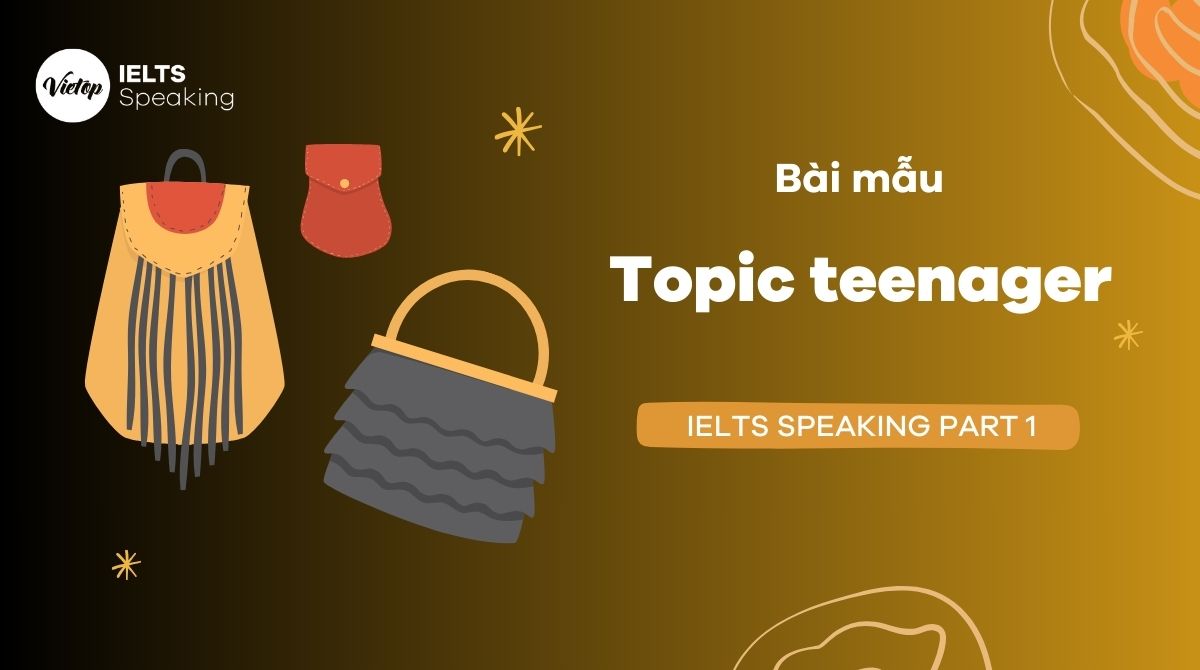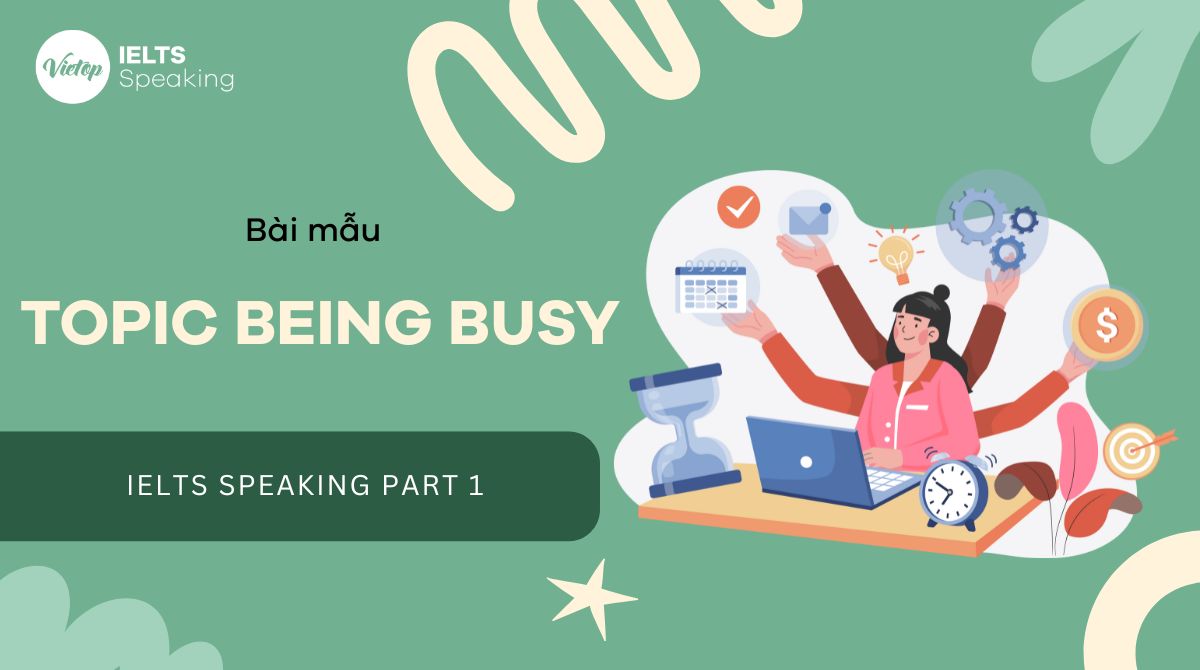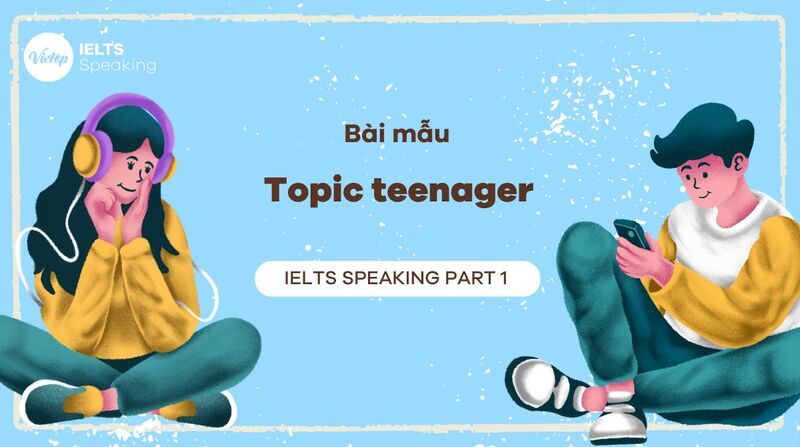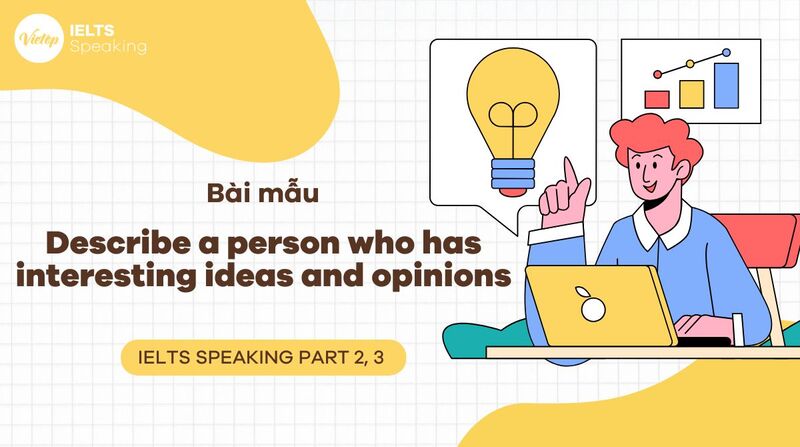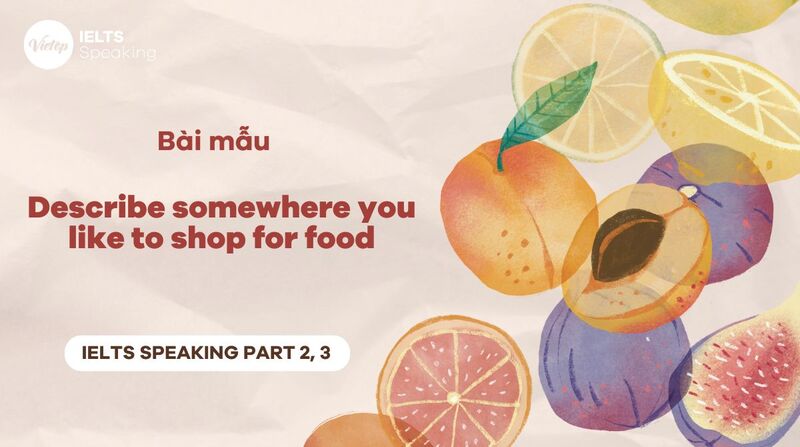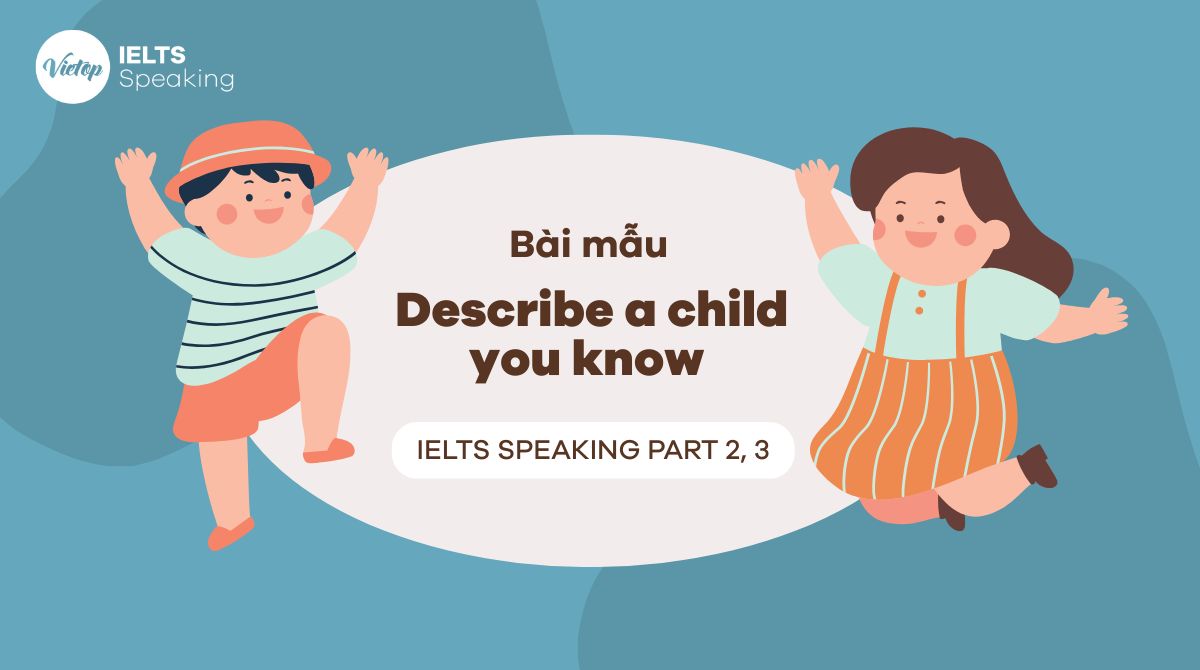Vietop English gửi đến bạn bài mẫu IELTS Speaking topic News and media, nếu bạn đang bị thiếu ý tưởng hoặc từ vựng cho chủ đề này thì nhớ lấy giấy bút note lại nhé!
1. IELTS Speaking part 1: News and media
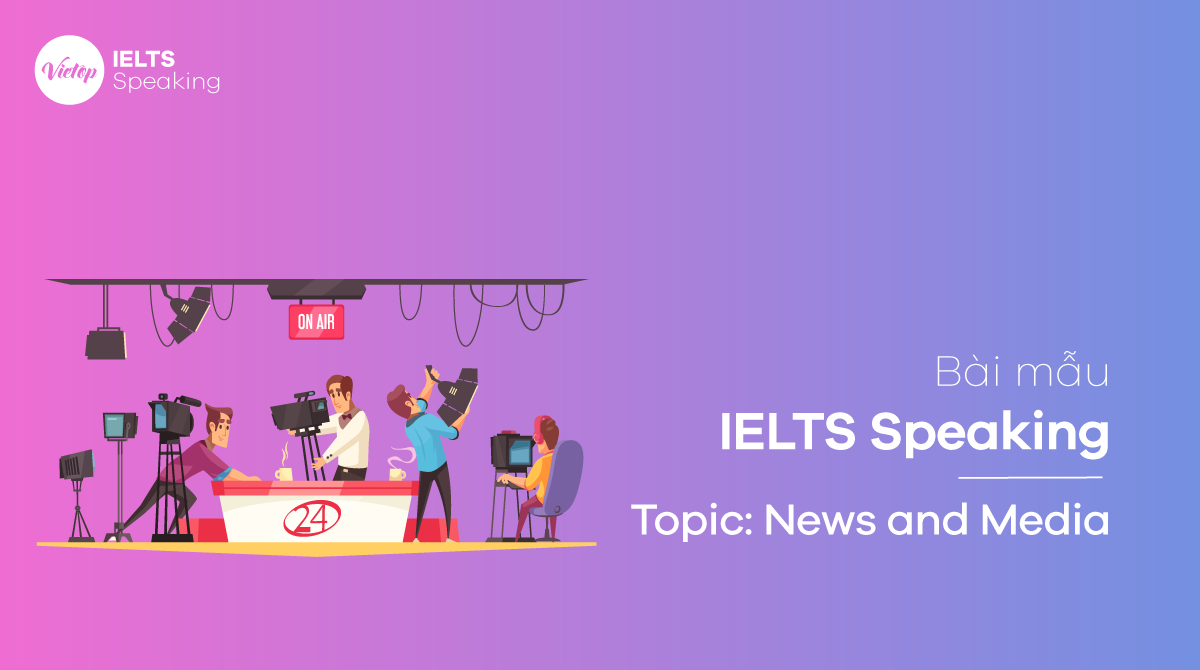
Sample
Where do you usually get your news?
I commonly get news on VNexpress, one of the most frequently-read e-newspapers in my country. Since the articles are regulated by the Government, I do not have to worry too much about the trustworthiness of the site. Facebook is also an accessible channel that gives me the freshest updates about fashion trends, politics and society in general.
- Trustworthiness (n): độ đáng tin cậy
- Freshest updates (n): những cập nhật mới nhất
Do you enjoy reading magazines?
Definitely. I have a yearly subscription to The Economist. The site’s display and writing styles may make it look like a handout on the first day of an MBA program, but the magazine features the most succinct, globe-encompassing wrap-ups of politics and economics. More importantly, it is an amazing study material, which has helped me immensely during my English learning journey.
- Succinct (adj): cô đọng, súc tích
- Globe-encompassing (adj): xoay quanh thế giới
- Wrap-up (n): bản tóm tắt
- Immensely (adv): một cách to lớn
Bạn muốn cải thiện kỹ năng Speaking với những tips và chiến thuật trả lời giúp ghi điểm với ban giám khảo. Khoá học IELTS 3.0 – 5.0 của Vietop English – nơi mang đến cho bạn lộ trình học cá nhân hoá, không chỉ tự tin chinh phục ban giám khảo trong phòng thi mà còn vận dụng được kiến thức thật trong đời sống thực tế. Tham khảo ngay.
In which kinds of circumstances do you usually listen to the radio?
Well, I used to listen to it every weekend when I was a secondary school student. Back in the day, I would turn on the radio and choose the loudest rock and roll music to get me in the mood to tidy up my bedroom. However, I guess the radio has now become a thing of the past, since it’s much easier to listen to news or podcasts, right from the convenience of smartphones.
- Get s.o in the mood: khiến ai có hứng thú
- A thing of the past: một thứ đã lỗi thời/ không còn nữa
Audio
Xem thêm:
- Bài mẫu Daily routine – IELTS Speaking part 1
- Bài mẫu Staying up late IELTS Speaking Part 1
- Bài mẫu IELTS Speaking topic Languages
2. IELTS Speaking part 2: News and media
Describe an article about health or a healthy lifestyle that you have read in a newspaper or a magazine.
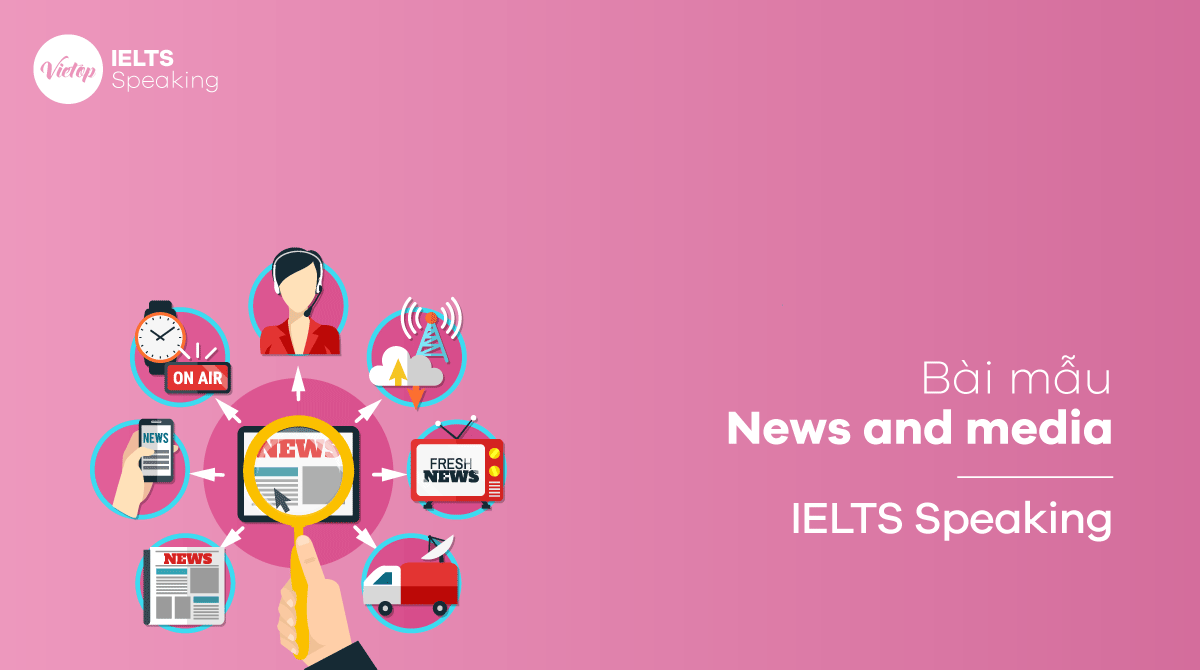
You should say:
- What the article explained
- When you have read it
- How important you think it was
And explain how you felt about it.
Sample
A few months ago I was struggling with breathing problems after infection with Covid-19, so I went on the Internet to look for remedies. That was when I came across an informative article about deep breathing.
If my memory serves me right, the website was called everydayhealth.com, which was designed in the form of a mini guide-book, helping readers to make healthier decisions and enhance their well-being. I thought it was a professional healthcare website and provided easy-to-read, in-depth medical information.
The article entitled “Deep Breathing: A Complete Guide to the Relaxation Technique” caught my attention, and I double-clicked it right off the bat. The article started off with reminding readers about how important breathing is, as we all do it regardless of whether we’re thinking about it. This kind of introduction really piqued my curiosity and made me want to discover more about the rest. It was highlighted that though breathing is a subconscious bodily function, we can always voluntarily control it by paying full attention to our breathing patterns.
A detailed breathing exercise was depicted throughout the article, and it was broken up into phases to take into account individual ability. From breathing while being on your back, on your stomach, while sitting or standing, all of the phases were meticulously instructed with description and illustrations, so that I could practice inhaling and exhaling as I scroll through the texts, which was a great bonus.
But for that interesting article, I wouldn’t have realized how proper breathing can do wonders for my physical and mental health. I was able to recover my lung function thanks to this simple tip of the article, and I would definitely practice diaphragmatic breathing more regularly in the long run, due to its immense health benefits.
- Struggle with s.th: gặp khó khăn với cái gì
- Remedy (n): phương pháp, cách điều trị
- Come across: vô tình gặp
- If my memory serves me right: nếu tôi nhớ không lầm
- Well-being (n): tình trạng hạnh phúc, khoẻ mạnh
- Easy-to-read (adj): dễ đọc
- In-depth (adj): đi sâu
- Catch one’s attention: làm ai đó chú ý
- Right off the bat: ngay lập tức
- Start off with: bắt đầu với
- Pique my curiosity: khơi gợi sự tò mò
- Subconscious (adj): tiền ý thức
- Be broken up: được chia ra
- Take into account: xem xét đến, chú ý đến
- Individual ability (n): năng lực cá nhân
- Meticulously (ad): một cách kỹ lưỡng
- Inhale (v): hít vào
- Exhale (v): thở ra
- Do wonders for s.o/s.th: có tác dụng tuyệt vời đối với ai/ điều gì
- Diaphragmatic (adj): thuộc về thoát hơi
- Immense (adj): to lớn
Audio
Xem thêm:
- Bài mẫu topic Customer service IELTS Speaking
- Topic sport – Bài mẫu IELTS Speaking part 1, 2, 3
- Bài mẫu topic Art and Painting IELTS Speaking part 1, 2, 3
3. IELTS Speaking part 3: Reading news
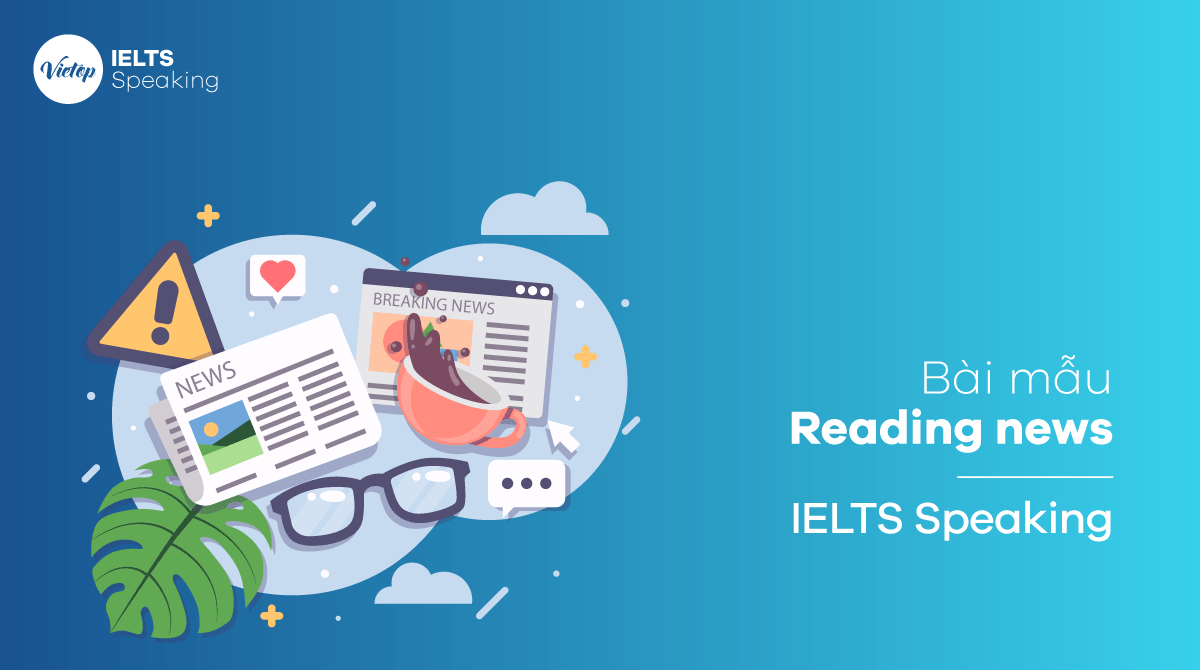
Sample
What kind of news do teenagers like to read? How about the old?
To be honest, I do not have the foggiest ideas about what types of content teenagers fancy nowadays, as my circle of friends is mostly composed of young adults. Maybe their tastes and interests have altered, compared to me when I was in my teenage years. But if I have to make an assumption, teen girls often find delight in articles regarding beauty, fashion trends and celebrities, while young boys are prone to reading news about sports and their favorite athletes.
As for the elderly, since they are more health-conscious, articles regarding aging and health would definitely be at the top of their list. They always wish to know how to spot the signs and symptoms of different diseases, and of course, how to tackle them, so that aging wouldn’t become a nightmare.
- Not having the foggiest ideas: không biết một chút gì
- Fancy (v): yêu thích
- Circle of friends (v): vòng tròn/ các mối quan hệ bạn bè
- Alter (v): thay đổi
- Find delight in s.th: thích thú cái gì
- Be prone to s.th: có thiên hướng, nghiêng về cái gì
- Health-conscious (adj): có ý thức bảo vệ sức khoẻ
- Be at the top of the list: là ưu tiên hàng đầu
What’s the difference between news on TV and news in magazines?
The major difference is that the content on TV is current news and developments on ongoing issues in the world, with each news is often broadcasted within a few minutes. Magazines, on the other hand, have specific content such as fashion, medicine or sports, with longer articles as it may include the author’s criticism and remarks. Another discrepancy I can think of is the frequency of publication. TV news is broadcasted frequently, and is already scheduled in advance for each and every day while magazines do not have to be published that regularly, with some even being published after a span of 3 months, 6 months or even a year.
- Discrepancy (n): sự khác biệt
- Frequency of publication (n): tần suất xuất bản
- In advance (adv): trước (ý chỉ việc được chuẩn bị trước khi thực sự diễn ra)
How has technology changed the way people get information?
Before 1995, the most popular ways to get news were newspapers and television. Now with the technology boom, as well as the predominance of the Internet, it has become a social norm when people use their smartphones and laptops to get themselves updated with the most current social affairs. The Internet is an endless resource of information, with ongoing issues uploaded and disseminated within seconds. It is uncertain to say that all the information provided has gone under careful inspection, but it surely changed the emphasis from being right to being fast, and altered readers’ behavior, as a result.
- Predominance (n): sự vượt trội, chiếm ưu thế
- Disseminate (v): chia sẻ, lan truyền
- Go under (v): trải qua
- Inspection (n): kiểm tra, giám sát
Audio
Với bài mẫu IELTS Speaking về topic News and media trên hy vọng sẽ giúp ích được cho bạn trong quá trình học IELTS. Nếu bạn có thắc mắc trong quá trình luyện thi IELTS để lại bình luận bên dưới để được giải đáp nhé!

